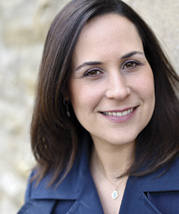Above: Detail from Drawing, late 19th century. Brush and gouache on cream paper, mounted on cream paper. 9 1/16 x 8 1/8 in. Cooper Hewitt, Smithsonian Design Museum, Gift of Friends of Drawings and Prints with special assistance from Theodore E. Stebbins, Jr. and Phyllis Dearborn Massar
PEDAGOGY
The Hebrew Bible begins with the story of Genesis, a story of God completing the creation of the world in six days. “And on the seventh day God had finished the work He had been doing; so on the seventh day He rested from all His work” (Genesis 2:1–2). Yet here in London, where I moved to direct St. Lawrence University’s abroad program, time seems to have lost its meaning. I have been restless ever since we made the call to send students home, as the COVID-19 pandemic spread. A director, orphaned of her program, away from her home, trying to bring a deserted city into the life of her students.
While moving to online teaching was challenging for most faculty and students, it presented a unique challenge to our abroad programs that use their location’s architecture, museums, foods, smells, and people, to teach about globalization and multiculturalism. How do you translate a smell, a vibe, an emotion, to an online interaction when the subject of your teaching is no longer accessible to you? How do you lead an abroad program with no students or city with which to interact? For directors, the sense of insecurity is amplified by the need to self-isolate in a foreign land, in a space that is not your own, with the prospects of returning home delayed indefinitely. Alternatively, it may have meant evacuating quickly, not knowing when, or if, you might return.

Photo by James Norminton
For my students, travel abroad was an important goal in their academic careers. According to the Institute of International Education (IIE) just over 10 percent of all undergraduates in US programs travel abroad during their studies.i At St. Lawrence University, over 50 percent of our students study abroad for a semester, and 70 percent have some off-campus experience as part of their studies. This is largely due to the intense involvement of faculty with off-campus studies. The university offers many opportunities for faculty to direct off-campus programs, to offer short-term travel components as part of our courses, to do research with students abroad, to offer summer courses abroad, and to coordinate each one of our thirty off-campus semester programs. Faculty members also serve fixed terms as associate deans of our Center for Intercultural and International Studies, enhancing faculty commitment to study abroad. So when the pandemic erupted, its ripple effects on study abroad were felt across the campus.
Studies show that living abroad is associated with the development of a clearer sense of self.ii Even short-term study abroad experiences significantly improve students’ job prospects and cross-cultural competency, and can transform their world view and sense of self. Still, what is left of this experience for teacher and students when their abroad experience comes to an abrupt end? What long-term implications might this have on their personal development?
Coming to terms with having to leave was also difficult. “I had a hard time accepting that I was going home and was not returning to London...
As a final assignment for my course, I asked my students to reflect on the meaning of an “unfinished” semester. Although this was not an official study, at least some of the responses indicate that despite the sadness, anxiety, and anger at having to leave London and finish their semester online, students were able to grow as a person and develop their resilience. One student expressed the need to first grieve, “Crying really helps. Before I even got back to the States, I began the process of grieving what I had lost.” The inability to “finish” the semester was another repeated theme. One student noted that “this unfinished semester has been hard on me because I have felt stuck and unable to finish assignments.” Coming to terms with having to leave was also difficult. “I had a hard time accepting that I was going home and was not returning to London. For days I didn’t unpack, change my calendar of events, or even change the time zone on my computer,” another student wrote.
Students missed the catharsis of the end of the semester, when their knowledge and experiences would “come full circle”; one expressed, “I feel as though the biggest thing that is lost from not making it to the end of the textbook, is the sense of fulfillment.” Yet, despite these missed opportunities, students demonstrated a degree of strength and maturity that we would expect from a study abroad experience.“From having to leave London, I realized how calm I can remain in stressful situations when others need my support.” Gaining an understanding of the limits of self-control was also a recurring theme. “I have learned that some things are out of my reach and what is important is how I react to things.”
But what of the director? I, too, fixated on the need to “finish” the semester. Continuing to teach an abroad program under these conditions highlights our dislocation: we are removed from each other and the place we are studying. It’s unnerving; it undermines the sense of self. What I gained in administrative experience, shepherding a program through perhaps the most challenging times for study abroad in half a century, was mitigated by the loss of learning and travel opportunities for my students. I, too, grieved as I gave up on the notion that I could bring the city into their homes.
In adapting my course to an online experience, reflection was the default pedagogy; trusting that my students had experienced enough to engage in deep introspection on how their current social and physical (isolated) location juxtaposed with their experiences in London.
Yet the need to “finish” and make the experience “come full circle” persists. Over the past few months, I have come to realize the importance of redefining our relationship with and meaning of completion. I am learning to let my mind rest, knowing that although my students and I did not complete the work we set out to do, we arrived at a destination worth experiencing. Letting go of the need to arrive where you first started is one of the first lessons I taught my students when they arrived in London; it is now time I learn that lesson myself.

Ronnie Olesker is an associate professor of government at St. Lawrence University in Canton, NY. During the 2019–2020 academic year she directed the university’s London program.